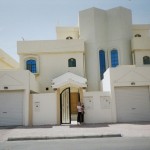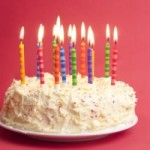I remember vividly our last interaction. There was a feeling of peace. It is difficult to describe. “It doesn’t look bad”, he said as he helped me buff out the yellow paint out of my red car. My father was referring to the scratch I had put onto my car exiting a circular parking garage when I was tired. And it didn’t look bad after we were done buffing. My father and I lingered a bit. We had all just enjoyed a nice weekend celebrating his 57th birthday. There was the usual family dinner and lots of laughs. But on that Sunday, I felt he was at peace. He had achieved what he had set out to do: give his children the opportunity he never had as a child and adult. All of his children had graduated from college and I had gone onto complete medical school. He was proud of us all. My father, Svetislav Milanovic was born in a town called Vinoraca in Serbia in 1940 during WWII. In America, he had come to be known as “Steve”.
My father had come to Cleveland, Ohio from Serbia to marry my mother (in an arranged marriage) after his options ran out in Serbia. Serbia was under communist rule when my father was in his 20’s. He was told repeatedly: “Go work the land” as his father had land. He heard these words when he tried to go to college, when he tried to get a job and even after he worked as an apprentice in a skilled trade for 1 year and tried to get a job. But farming was not his calling. So the opportunity arose to marry my mother and he took it leaving his family behind. He came to the United States with the clothes on his back and one piece of luggage. And he literally walked nearly barefoot in the snow to and from school as a child. Many parents say this but for my father, this was a reality.
When I left to return to Columbus where I was living that Sunday, I didn’t know: he would never be the same again. On early Tuesday morning, I awoke at 1 am, 2 am and 3 am. Each time, I ran to the bathroom and dry wretched. Both of my siblings would later recall having similar symptoms. It was shortly after the 3 am awakening that I received the call: my mother had found my father unresponsive with vomit on him. He was in the Emergency room. “Oh my goodness, he stroked!” I said to my sister. “How do you know? They haven’t even given us the results of the cat scan yet!” she said. I knew. It was part of my training to know. My father was soon after life flighted to a major hospital in the city as he had had a bleed into his brain. Bleeding within the brain can cause increased pressure which leads to a patient vomiting. The bleed rendered him paralyzed on one side of his body and with difficulty speaking. After the first 24 hours, my father seemed to be the same man he was when I had seen him last. But as the swelling worsened in his brain, the man I knew was lost to us forever.
I would drive 2 hours from Columbus to Cleveland twice during the week to visit my father returning to Columbus the next morning by 7 am to round on patients. The times were amongst the toughest in my life: physically, emotionally and spiritually. My father would take two steps forward and then one step back. His speech didn’t seem to be coming around, and he was still paralyzed. More than a month had gone by; I just did not know what to believe. Would he ever recover? I posed this question to a physician mentor at the end of a work day. He said: “Maybe it is just time that you accepted that this is the way he will be forever.” I drove home crying the whole way. Not just crying but sobbing very loudly. It is a wonder that I didn’t hit the circular wall on the way out of the parking garage again. Thankfully home was less than a mile away.
Fortunately for my father, in the next days, he took his first steps. I was there to witness them and will never forget them. It was as if I were the parent watching my child take his first steps. I was through the moon with joy. The steps were really not much. The therapist had a belt around my father’s waist and he was almost shuffling if not waddling for a short while.
These first steps changed everything. They brought him closer to being discharged from the hospital to an acute rehabilitation facility rather than a sub acute facility. In an acute facility, he would receive much more intense therapy than in a sub acute facility. His ability to be able to tolerate hours of rehab was the deciding factor. My sister and I pushed for the acute facility and won. Then, it was just a matter of finding a facility. The tours of the acute facilities made us both cry. Our father was nothing like the patients in these facilities: he was not old. Again, we were the parents making the decision for our “child”.
At about the same time as my father was to be admitted to rehab, I had a serious decision to make. I was finishing my residency and the mountains and outdoors were calling me for my first job. I had only interviewed in the Seattle area and had selected a practice just outside of Seattle. I called a family meeting to present the letters I had typed: one accepting the position and one rejecting the position. It was unanimous what my siblings and mother thought I should do: go to Seattle. Our father would not have wanted me to change my life for him. Despite their support, it was the toughest decision I would ever have to make and one I will question forever.
I went on to graduate residency, and to take some time off to be in Cleveland before moving to Seattle. I made several trips back to Cleveland the first year I was away. My father despite being able to walk and talk did not initiate a conversation after the bleeding into his brain. He only spoke when spoken to and out of necessity. And when he was tired, he acted like he had Alzheimer’s. During one particular trip to Cleveland, I said: “Dad, I have to return to Seattle. He said: “Seattle, you don’t live in Seattle!” I said: “Where do I live?” He said; “You live in New York!” I said: “Really, what do I do in New York? You are a teacher, a teacher in New York.” I was so very sad. One of the things he had work all his life for and was proud of, he did not even remember.
One day in August 1998, my future husband, Kerry and I were driving to go to an outdoor concert at Chateau St. Michele Winery. We had the windows open with a breeze flowing through the car. As we were driving, I smelled the “smell” of my father. It was a combination of Stetson, a cheap men’s cologne and a manly smell, not quite sweat or body odor, just manly. I looked over at Kerry and couldn’t register it all. Kerry didn’t smell like this. I soon dismissed it. Around the same time, my brother-in- law had “smelled” my dad while alone on scaffolding 2 stories up.
I received a phone call that night. My mother had found my father unconscious and he was in the hospital. I spoke to the ER physician and found out that he was on a lot of medical support including levafed a medication better known to those of us in the medical community as “Leave ‘em Dead”. I knew he was nearly gone but, I refused to believe. I was lucky enough to be able to catch the red-eye flight to Cleveland that night. It probably was my sister who picked me up from the airport but now, I cannot even recall. I do know that we went straight to the hospital. On arrival, my father’s pupils were fixed and dilated. His abdomen was distended from his organs being deprived of oxygen too long. But, he had a heartbeat. After I was in the room for a short while, his heartbeat started to slow from the 70’s to the 60’s to the 50’s to making the alarms sound. He had waited for my arrival to go but this was just the kind of man he was: gracious. The ICU physician asked me what to do, incredulous! He had had all night to talk to my mother about resuscitation status and he was asking me now as my father was arresting! I said: “Do a “soft code” and get out.” A soft code was what you did when you knew the patient was gone but you did not have the authority to not resuscitate. I walked out of the room to see my brother and cousin who were down the hall with hope in their faces until they saw mine. Their walk turned into a run as I shook my head. I hated knowing, knowing that he had been gone from the start.
I was in denial for a long time afterward. Living so far away allowed me not to have to cope. I constantly remembered the man he was. I remembered how he would read Dear Abby and Dear Ann Landers, popular advice columns printed in the Cleveland newspapers. They would have been proud of my father. He came to this country raised to believe that the man ruled the family with an iron fist which he did. To become the man he was destined to be: one who was kind caring and in a equal relationship with his spouse. I recalled fondly how he and I were so very similar particularly in regard to being extraverts. When we were older, both my father and brother could drive to Christmas Eve mass so my father and I could stay to socialize after mass. We would be amongst the last people at the church, long after my siblings and mother had gone home. I recalled all the rules he had instilled in me: “Don’t burn your bridges he would say.” How he called everyone “Chief” when I was younger, even the gas station attendant. I would say: “How do you know he is a “Chief”? He said: “Everyone is a chief”, meaning treat everyone with respect. I would hear all the time that he was THE nicest man and so handsome. With his jet black hair, he resembled the actor Bob Crane who played Colonel Hogan on “Hogan’s Heroes”, a sitcom from the 60’s.
Family friends would comment on how he had always taken time to write out the most thoughtful cards. My sister later told me about a letter she had received from his place of employment, a thank you letter from a customer. My father fixed adding machines and typewriters and did service calls all over Cleveland. The customer had written that despite having a car accident during a blizzard, my father still made it to their business to service their machines. He carried on as if nothing had happened. But this was another example of the kind of man he was. Another fond memory I have is looking for my father one Christmas Eve when I was about 10 years old. He was downstairs in the basement in his workshop repairing a typewriter. This was not unusual as he often did “side jobs” at night. I remember having a nice conversation with him. He was nearly finished and said: “Why don’t you go to bed?” As I lay falling asleep, I wondered could that typewriter be for me. I could only wish. I was so excited that sometime in the middle of the night, I awoke and couldn’t stand the suspense. I got up to have a look under the tree. And sure enough there was the typewriter with a bow on it for me.
Other memories that will always stay with me are that when we were growing up, he taught us tolerance and acceptance of others. Many of the other Serbian parents within our community would not let their children play with “American” children outside of school. My parents never imposed this restriction upon us and allowed us to make our own choices in regard to whom we associated with. During a particularly tough time of my medical training, my father said: “Don’t do it for me. And if you choose not to go on to become a doctor I wouldn’t love you any less.” His words served to give me the strength to carry on and complete my training.
Periodically after my father’s death, I would dream about him. The dreams were always so real. I would wake up so happy as if I had really been with and had seen my father. I would also periodically smell his smell, the one of cologne and manliness. Then for a long time both of these remembrances were gone. About a year after my father’s death, I was called in to deliver one of my pregnant patients. It was an easy delivery of healthy baby. I walked out of the room with a smile on my face and it was then that I smelled my father’s smell. It was then that I knew that he knew. He knew what I had become and he was right there with me as he would always be. It was the last time that I smelled my father but the first time I smiled and didn’t cry in his remembrance.






















